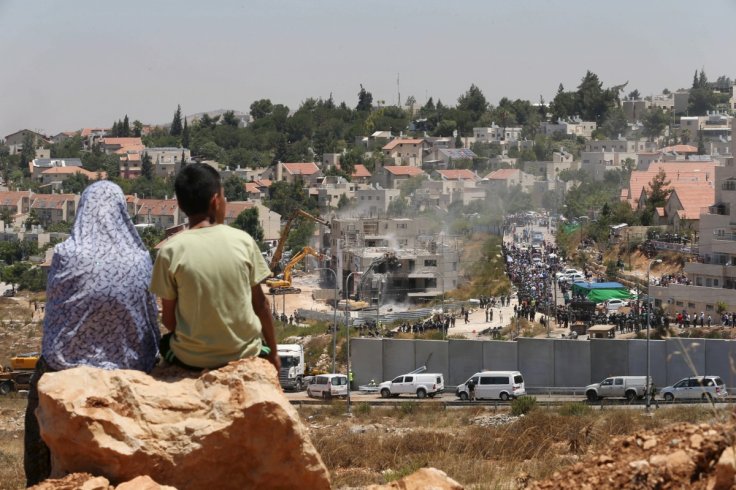Israel Defers Demolition of Palestinian Village
July 13, 2018 | Expert Insights

Israel’s Supreme Court deferred the planned demolition of Khan al-Amar, a Bedouin village in the occupied West Bank, on 12 July.
UN Office for the Coordination of Humanitarian Affairs (OCHA) said Israeli authorities demolished 197 Palestinian structures in the occupied territories during the first half of 2018.
Background:
The Israeli Declaration of Independence in 1948 by David Ben Gurion ignited a series of wars fought by Arab states against Israel. The Arabs were initially on the offensive, but their military resources dried up when the UN declared an arms embargo on the region. In 1949, Israel signed a series of armistice agreements with the Arab nations involved.
Following the historic Oslo Accords, Palestinian National Authority (PNA) was established as an interim self-government body. However, the authority is undermined by imposition of Israeli law on Palestinian lands. There are over 150 illegal Israeli settlements in occupied East Jerusalem and the West Bank. Israel has also violated international law by claiming the Golan Heights from Syria.
Israel’s illegal settlements have rapidly increased since 1967. Recently they have expressed intent to raze Khan al-Ahmar, a bedouin village in existence before 1947, to the ground. The move would cut off Jerusalem from Area C of the occupied West Bank by destroying the “E1 Corridor.” Area C has been overrun with more than 300,000 Israelis living in 125 illegal settlements and is under Israeli administrative control.
The Arab Bedouin are a small, impoverished minority among the broader Palestinian population. Like many other Bedouin encampments, residents of Khan al-Ahmar live in rusted tin shacks or tents, often without electricity or running water, and raise livestock.The Bedouin way of life is under grave threat as their freedom of movement and right to property have been grossly violated by Israel’s systematic campaign of expulsion.
Read More on How New Irish Law May Prohibit Trade With Illegal Settlements
Analysis:
The Supreme Court ruling will uphold the injunction to stall demolition in the village. Both parties have been called for further hearing on 14 August by a larger panel of judges. The U.N. High Commissioner for Human Rights had called on Israel to abandon the demolition plans and said the destruction of private property by an occupying power violated international law.
The Israeli high court approved the demolition in May, overturning an injunction protecting the community and upholding an earlier ruling that the village was built without proper planning permission. However, it is near impossible for Palestinians to obtain permits to build infrastructure in occupied West Bank. United Nations figures show that Israeli authorities have approved just 1.5 percent of all permit requests by Palestinians between 2010 and 2014.
Diplomats and visitors have been blocked from entering Khan al-Amar as Israeli forces declared it a militarised zone after protests from Palestinians. 35 people were injured and 11 arrested, including a teenage girl, for throwing stones after the military left a land confiscation notice and moved in three bulldozers. The arrested were expected to pay a lofty $2,070 fine.
"In addition, they were ordered to remain out of Khan al-Ahmar for 15 days, despite the fact that many of them have no other home or family to go to," the office of Gaby Lasky, a lawyer representing the defendants, said in a statement.
Between 2008 and 2014, over 6,000 Bedouins were forcefully displaced in Area C after the Israeli forces razed their homes. In 2017, the Bedouin village of al-Araqib was destroyed for the 119th time by Israeli forces even though its residents carry Israeli citizenship.
“I was born here and will not move anywhere else,” 45-year-old Feisal Abu Dahok said. “If they destroy the village, we will build it again here or nearby.”
Many believe that Khan al-Ahmar will be displaced next to a landfill serving the Palestinian village of Abu Dis in order to construct a road to connect two Israeli settlements. The move would not violate international law applying to occupied territory, but forced transfer of a population would amount to war crimes.
Assessment:
Our assessment is that increased expansion of illegal Israeli settlements is in violation of international humanitarian law. We believe that the Israeli government must take on a more proactive role in providing Palestinians a hospitable environment to live in as required by the Oslo Accords.








Comments